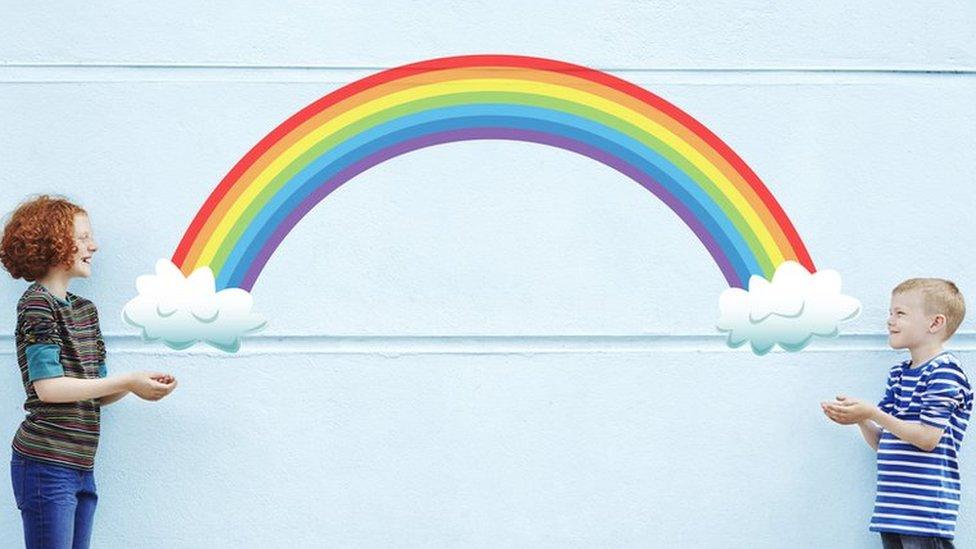Christmas: Advice if you're upset by new Covid-19 lockdown rules
- Published
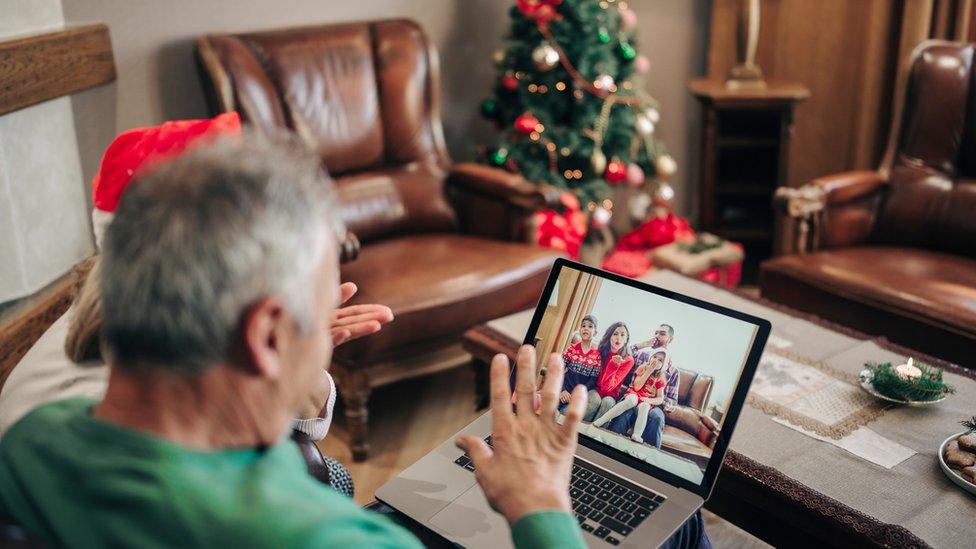
The Prime Minister has announced big changes to the rules for meeting up at Christmas. The new rules mean many families won't be able to see each other as planned.
Boris Johnson said the change was "bitterly regretable", while Nicola Sturgeon, Scotland's First Minister, said the new rules in Scotland "make me want to cry".
Wales' First Minister Mark Drakeford said, as he announced new restrictions in the country, "We know that 2021 will be a different and a better year."
In short: it's ok to be really disappointed with the new rules.
People all over the UK, are having to change their plans and accept that they might not be able to see some family members or friends like they normally would.
But while the situation might not be what anyone wanted, there are many reasons to hope, and ways you can still make the best of things this Christmas.
Why we can have hope

All year scientists have been working around-the-clock to find a vaccine. There has been massive progress: A vaccine from Pfizer and BioNtech has been approved for use in the UK and the Health Secretary says more than 350,000 people have already received their first dose.
Another vaccine produced by Oxford University and the pharmaceutical company AstraZeneca - is also being considered for use in the UK.
There's another vaccine from a company called Moderna, and the UK government has purchased seven million doses of that. So, once approved for use, that will be made available for people over 18 in the UK.
Although the amount of people getting the vaccine is currently a small proportion of the population, as time passes and more and more people receive it. This should mean that lockdown restrictions can be loosened.
The new tier 4 rules now in force in London and many parts of the south east and east say that people from different households cannot mix - even on Christmas day - and that no one should travel into or out of a tier four area, unless it is essential.
There have also been changes in Wales and Scotland, with a household only allowed to meet one other to form a "Christmas bubble" on Christmas Day.
People in Wales are allowed to travel to other parts of the UK, subject to the local restrictions in the area they are travelling to, but people living in Scotland aren't allowed to leave Scotland.
Tighter lockdown restrictions will come into force for Scotland, Wales and Northern Ireland on Boxing Day.
How can you make the most of Christmas
While you can't change the situation, you can still do what you can to make things feel as normal as possible this Christmas.
Spend time with family... virtually. If people can't be with you on Christmas Day, that doesn't mean that can't still share in the memories you're making or experiences you're having.
Video call your aunts, uncles and grandma while you open your presents from Father Christmas - although if you're a very early riser, maybe get your adults to check with them ahead of time!
Whether you're sitting down to watch a Christmas film with your friends or cousins, or keeping your grandma company when she puts on the Queen's speech, you could host a watch party so multiple households can watch together.
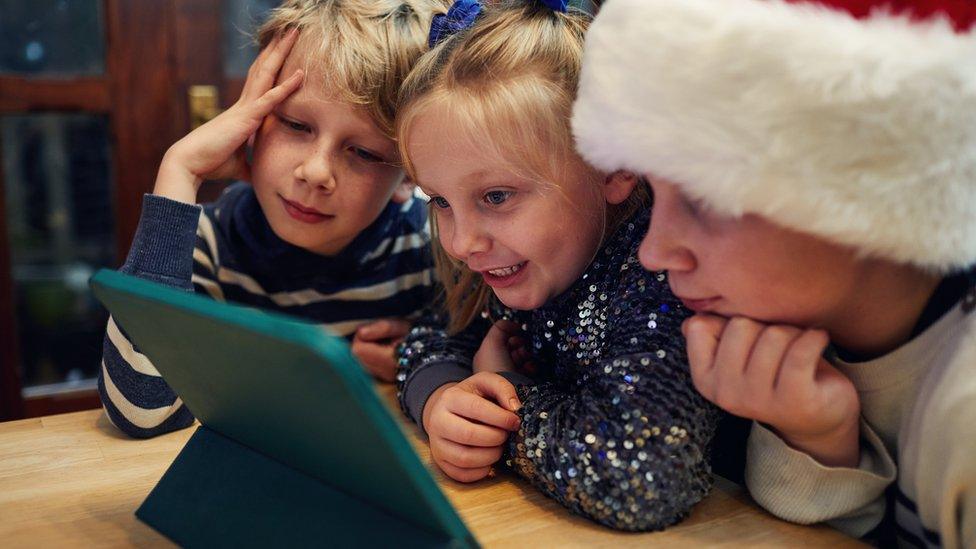
There are lots of different apps and extensions you can try but check out our guide from earlier this year and ask an adult if they can help to set one up.
Equally, if virtual meet ups are not your thing, don't feel pressured to take part but maybe take lots of photos and videos of your day to share later.
Try and coordinate your schedules
If you'd usually have Christmas dinner with certain friends and family members, you could ask the person making your Christmas dinner if it would be possible to eat your meal at the same time as them.
This way you can feel like you're experiencing it together share pictures and videos afterwards of your all your delicious food and the silly gifts and jokes you got in your cracker.

Adapt your Christmas traditions
Mental health charity Mind suggest finding alternative ways to still keep the Christmas traditions which you enjoy.
Instead of going to a Christmas carol concert or service, you could watch one on TV or join in with a virtual choir.
Pause or postpone events
If there are events or traditions that you can't do this Christmas, it may help to think of them as paused rather than cancelled. You could make plans to meet up with people next year, even if they happen in the summer.
For example, if you were due to have a Christmas party, you could suggest holding a summer solstice party instead. This could give you things to look forward to next year.
Look out for any positives
You might feel relieved that some parts of your usual Christmas may not happen this year - and might enjoy having a quieter, simpler Christmas than usual.
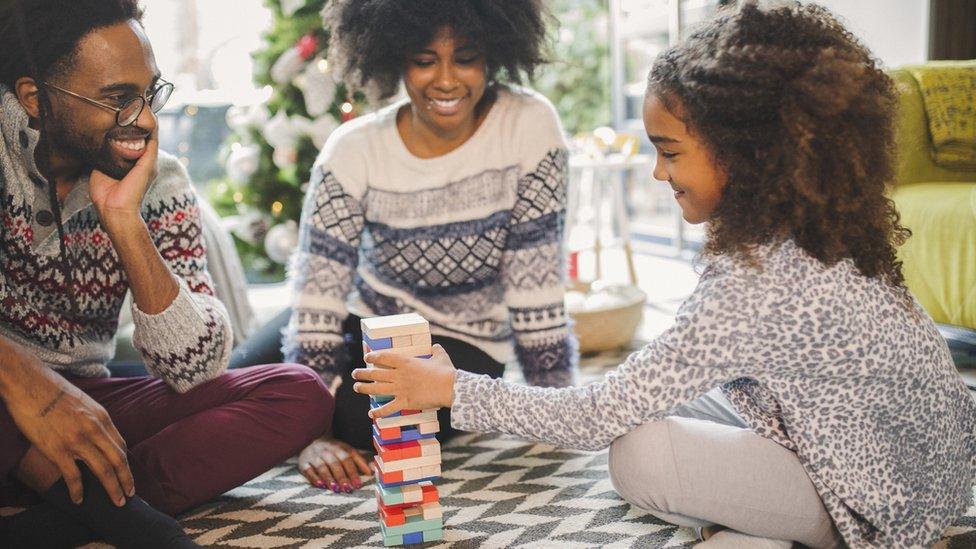
This might feel difficult to do, especially if your Christmas usually involves other people but it's ok to find new ways to enjoy the festive period.
A quieter Christmas could also give you more time to spend on things YOU enjoy, whether its properly getting to grips with your new presents, reading a book, playing a board game or doing some festive baking or arts and crafts.
What to do if you are feeling sad
It's important to remember that if you're felling sad, worried or angry about things happening in the world that are outside of our control, you won't be the only one who feels that way.
Advice if you're upset by the news
When there's so much information to take in and everything gets muddled in your head, it's very easy to get even more frustrated, confused or upset.
If you feel like this, try writing down your thoughts in a journal, or in the notes on your phone. This will help you when you talk to someone later.
Don't compare your Christmas to other people's, or what's said on social media - everyone's Christmas is different.
If this news has upset you, talk to an adult you trust about it. It's important to share what is troubling you, be aware of your feelings, and to look after your mental health and your wellbeing.
If you are feeling worried, there is lots of support out there for you to get help.
Speak to an adult you trust, like a parent, guardian or a teacher.
You can also contact Childline on 0800 1111 for free at any time.
Childline is run by the NSPCC.
- Published20 December 2020
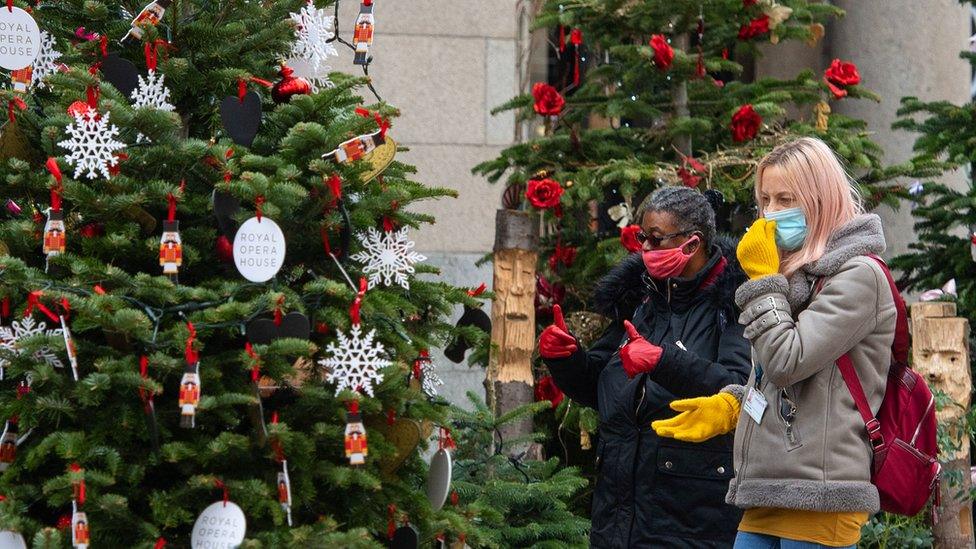
- Published20 November 2020

- Published5 January 2021
